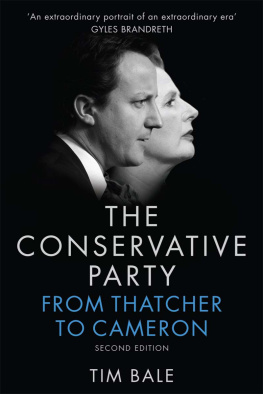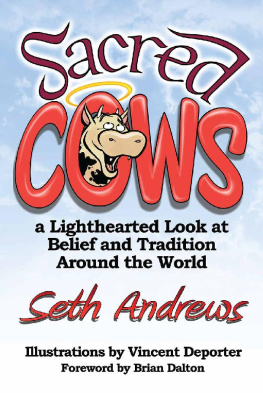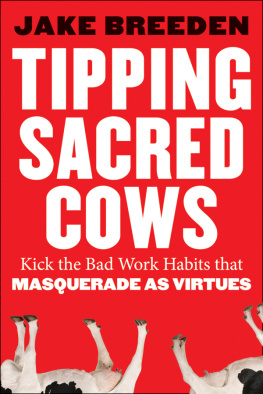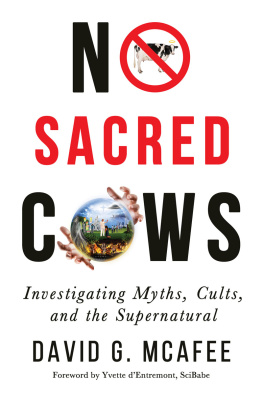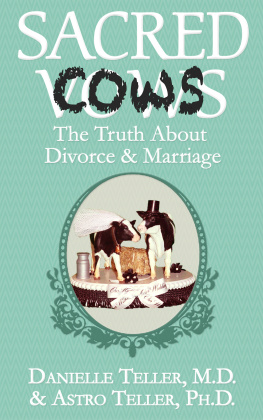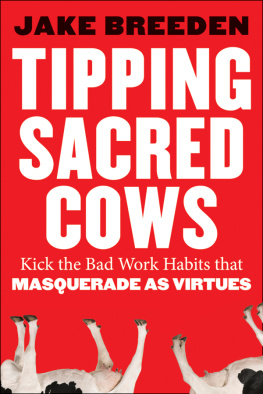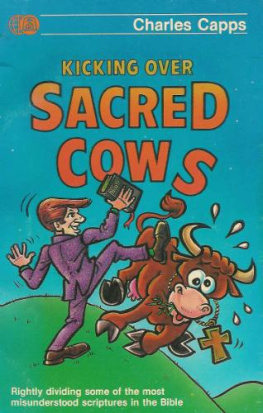SACRED COWS AND COMMON SENSE
To Jackie, Javier Tom and Beln Poppy Bale
Sacred Cows and Common Sense
The symbolic statecraft and political culture of the British Labour Party
TIM BALE
Victoria University of Wellington
First published 1999 by Ashgate Publishing
Reissued 2018 by Routledge
2 Park Square, Milton Park, Abingdon, Oxon, 0X14
4RN 52 Vanderbilt Avenue, New York, NY 10017
Routledge is an imprint of the Taylor & Francis Group, an informa business
Copyright Tim Bale 1999
All rights reserved. No part of this book may be reprinted or reproduced or utilised in any form or by any electronic, mechanical, or other means, now known or hereafter invented, including photocopying and recording, or in any information storage or retrieval system, without permission in writing from the publishers.
Notice:
Product or corporate names may be trademarks or registered trademarks, and are used only for identification and explanation without intent to infringe.
Publishers Note
The publisher has gone to great lengths to ensure the quality of this reprint but points out that some imperfections in the original copies may be apparent.
Disclaimer
The publisher has made every effort to trace copyright holders and welcomes correspondence from those they have been unable to contact.
A Library of Congress record exists under LC control number: 99073395
ISBN 13: 978-1-138-35092-2 (hbk)
ISBN 13: 978-0-429-43558-4 (ebk)
Contents
The fact must be recognized that a political party, especially in a two-party state, is immensely embracing and can include within its limits diametrically opposite opinions on almost all subjects except the one or two which happen to be the immediate ground of party conflict at the particular time. Yet, though so protean, it is nevertheless one kind of human society, however nebulous and loosely attached. As such it has a common memory, and the attitude it is liable to take up towards alternatives presented to it in the present is influenced by a recollection, often partial and unhistorical, of the part which it played in a past event....Perhaps therefore the least misleading way to characterize the attitude of a party...is to describe how it behaved at various critical points in history on the presumption that, deliberately or unconsciously, it will reproduce that behaviour in its present and fixture attitudes.
J. Enoch Powell (1953: 157)
The book is intended for both political scientists interested in parties and government and political historians interested in the postwar Labour Party. It is based on unique and extensive research in previously unavailable party, state and private archives in the US and the UK, as well as on original interviews and media study. It attempts to demonstrate the utility of fusing a realist conception of statecraft, an interpretivist interest in symbols, and a predictive and potentially comparative model (based on Mary Douglas and Aaron Wildavskys Cultural or grid-group theory) of the interaction between institutional structure and world-view that we call political culture. This is done by way of a case-study whose focus is the background, occasion and long-term consequences of the Wilson Governments decision in 1968 to (re)impose charges for NHS prescriptions. At the time these events were accorded a degree of significance which today may seem surprising indeed they merit study in and of themselves. Nevertheless, their interest here is as much exemplary and incidental as it is intrinsic: they facilitate the use of a novel combination of approaches in order to provide fresh insights into political actors, institutions and processes insights that hopefully hold true both for the events in question and across time.
In addition to providing a contribution to recent work in both politics and history which aims to question and complexify the idea of a postwar consensus, the study does three things. First, it undermines the conventional wisdom that we should separate the merely symbolic from the supposedly substantial, and to argue that unless we fully appreciate their inextricability we impoverish our understanding of government and of inter- and intra-party politics. Second, it argues that the typology proposed by Cultural Theorists (although not entire of itself or without its problems) can enrich and systematise our understanding of a partys political culture, as well as render it comparable with that of others. Third, it suggests that while Labours social policy has played a significant part in its efforts to simultaneously manage itself as a party, win political argument hegemony and elections, and demonstrate governing competence, it has also been a crucial factor behind the failure of such efforts not least because it sooner or later comes into conflict with a media-policed common sense which is (or comes to be) shared by the Partys leaders, but not by a substantial proportion of their followers.
It concludes on a contemporary note by arguing that New Labours much trumpeted desire to think the unthinkable, to make tough choices when it comes to welfare does not as yet constitute a serious attempt to confront the challenges of a much-changed and ever-changing society. Rather it stems from a traditional social democratic wariness about welfare, a desire to dampen expectations, short-circuit (and even perhaps finally put an end to) internal dissension, and send signals of good faith to those forces that caused previous Labour governments so many problems. It may be part of a wider attempt to distance the Party from its past; but that distance is largely rhetorical if one recalls what Labour has done in office rather than promised in opposition. One does not have to buy into the far-left critique of Labourism to suggest that the Labour Party under Tony Blair is not so much sui generis as reverting perhaps to type.
This study was funded by the ESRC (which not only provided me with a Research Studentship R00429334013 between 1993 and 1996, but also helped finance a trip to Harvard, where Robert Putnam kindly allowed me to consult the original transcripts of his interviews with British MPs in the late 1960s) and the Scouloudi Foundation, which awarded me a Fellowship at the Institute of Historical Research from October 1996 to March 1997.
This study also benefited from the help and encouragement of many people, not all of whom I can hope to mention individually. The politicians I interviewed have been thanked personally. Thanks are also due to the archivists at the Museum of Labour History in Manchester (Labour Party material), the John Rylands Library in the same city (Hetherington papers), the LSE (Shinwell papers), the Bodleian (George Brown papers), the BMA, and to Ruth Winstone and Tony Benn. Academic assistance has been plentiful, especially in the Department of Politics at Sheffield University: thanks to my main supervisor, Patrick Seyd, my second supervisor, Martin Smith, and my unofficial supervisors, Andrew Gamble, David Marquand, and Steve Ludlam. Also to Mike, Peter, Sue, Dominic, Gavin et al., and to Sarah, Chris and Sue in the office. I would also like to acknowledge the help of David Butler, who gave me the opportunity to be one of the first to use the rich resource that is the Nuffield archive, as well as that of Mary Douglas, Mike Thompson, Lewis Minkin, Kenneth O. Morgan, and my external examiner Anthony King. To my colleagues at Victoria, and to Anne, Ben, David, Petr, Jos. and Sue: youve been great!




